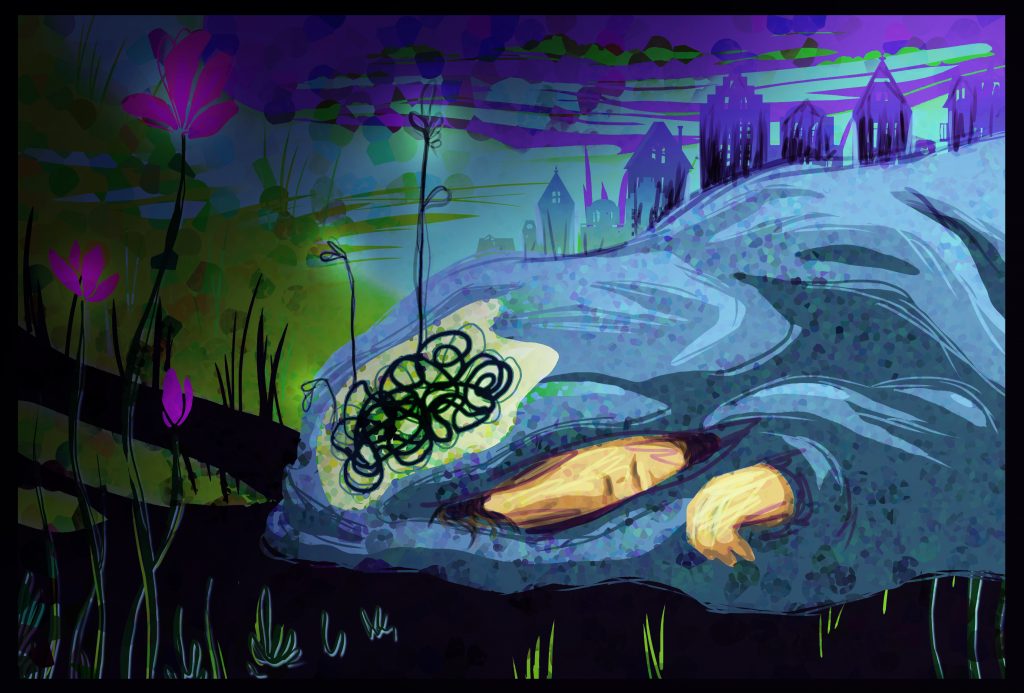

The thing I have never been able to say about being homeless is, it is not always the worst thing. I grew up in a family where violence pervaded every interaction, where my destruction was the main course at every meal. That family left me traumatized, left me with PTSD and dissociative issues and attachment issues, left me physically ill with the chronic health issues that tend to attach to female survivors of severe childhood trauma. When I was 20 years old, the trauma and chronic pain was a wave that grew bigger than I was, and I couldn’t escape it anymore.
The wave was always there, though. Homelessness was a manifestation of the problems in my life. There was a part of me that has never been so at ease as when I had nowhere to sleep at night except a patch of ground. Part of me felt I was finally where I belonged. Society said if I couldn’t belong to my family, then I belonged nowhere. I chose nowhere.
Eventually I made other choices. Luck happened to me in the form of a few thousand dollars’ worth of inheritance, which was just enough to start another kind of life. The first time I went shopping for clothes in two years, I bought everything purple the store sold in my size.
Also, other choices made me. I learned to manipulate other people to climb my way out of the maze of social services and shelters and “help” always offered with strings attached. I learned to steel myself against my survivors’ guilt, then to steel myself against feeling anything.
The friends I made when I was homeless are the best friends I have ever had in my life. Sometimes I regret that I grew on from being homeless. I still feel homeless. I still feel like the personality of a homeless person in the body of a housed person. The people I’m told are my peers don’t understand my stories of trauma or of shame. When I tell them too much about myself, they accuse me of oversharing or harming them with my truths. I am now a truth that my supposed peers find harmful. My stories of survival and triumph are stories my demographic does not want to hear.
Surviving homelessness meant relearning brutality. It meant telling my friend she could not sleep in my new room in my new apartment. It meant forgetting the friendships that sustained me, in favor of the far more shallow friendships that society says are necessary but that sustain nobody. I’m glad I have a relatively safe place to sleep tonight but sometimes I think I left a piece of my soul by the side of the road waiting to be saved and I don’t know how to get that piece back.
The new life I have moved into has its moments. I am proud of the writing I have done and the few relationships I have built. Still there is something breathing hard on the back of my neck pushing me forward. I feel like the only living survivor of an entire vast community, a long list of children of my generation raised in violent houses and bullied in violent schools who ended up sleeping on the side of the road because it was safer than anyplace else. Sometimes human beings are the danger. Sometimes we have good reason not to want to live inside a home, even if we had a home to go back to.
I have learned so much since turning my back on the community that raised me and violated me and threw me out to fend for myself. Having a roof over your head is not the same thing as having a home. I am learning I have a right to exist as what I am, regardless of how other people might feel about that. I will speak for the community I come from, whether our members have roofs over their heads tonight or not.
Homeless No More is a column that features the stories of people making the transition from homelessness to housing.
Ari Wolf is a daughter of the Bay Area. She earned her MFA at Mills College in 2019 and has since published, performed, and spoken nationally about sexual violence, childhood trauma, and disability. As someone who experienced homelessness due to trauma and chronic illness, Wolf is grateful to Street Spirit for the opportunity to write about these topics in her own backyard.
